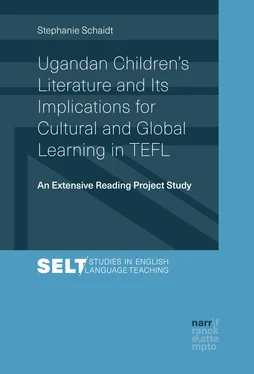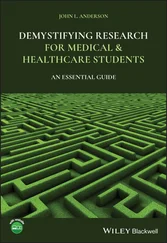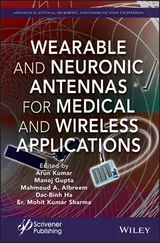2.9 Relevance of the Different Concepts and Developments for the Present Study
This overview of important concepts and developments in the field of cultural and global learning leads us to a reflection on the importance of selected discourses and approaches and their relevance for my study.
The present study is based on a broad understanding of culture and considers transcultural competence a desirable objective in the EFL classroom. While the approaches of Fremdverstehen and intercultural learning focus on the negotiation of meaning between separate cultures and so inevitably adhere to the ‘self’ and ‘other’ binary, the transcultural approach strives to take cultural transgressions, diversity, commonalities and the individual with its multiple identities into account. In our postmodern society, which is characterised by blurrings and hybridity, and also against the background of prevalent power asymmetries, I regard the transcultural approach as more appropriate for the foreign language classroom. It has to be acknowledged, however, that it is the intercultural approach that is mainly reflected in German educational documents and materials today (see Chapter 2.2). Furthermore, binary oppositions are an inherent part of human thought (see Bauman, 1991, p. 8). Consequently, it can be expected that students (and teachers) often remain caught in binary comparisons and nationalist thinking in the EFL classroom. The aim of the present study is to reconstruct students’ approaches to otherness and to discuss implications for cultural learning in the EFL classroom that evolve from the results of the research.
Furthermore, constructivist ideas of learning and understanding otherness strongly impact my study. My research does not focalise an allegedly given objectivity but instead puts the subjective experiences of the students in the centre of the investigation. However, since I also consider the social framework, i.e. school, media, socialisation, etc. to play an important role in the meaning creation process of the individual student, my study is informed by a rather moderate constructivist approach (see Wolff, 2002a, 2002b) that mediates between subject and context and attempts to balance both poles. The aim is to find ways of how the students’ mental processes of construction and deconstruction may be effectively negotiated in the classroom.
In my research, approaches critical to racism are also taken into account. As my study focuses on postcolonial literature and a country that was a British protectorate for almost 70 years, which continues to be of political, social and cultural impact today, I consider the reflection upon the history of colonialism and the prevalence of neo-imperialistic power asymmetries and racist structures as very important in this context. The students’ prior knowledge concerning these aspects and their reflection processes need to be given attention in my study. From this, implications for cultural and global learning will be developed.
A further focus of my study is placed on global education. As elaborated on in Chapter 2.8, global education in the German EFL classroom is commonly concerned with ‘global’ risks. Since ‘Africa’ is often mentioned in the context of crisis, it frequently serves as an object of study in global education approaches. Wars in African countries and the HIV/AIDS epidemic in Africa are made topics of classroom discussion.1 So called ‘global topics’ are treated also in Ugandan narratives; there is, for example, a remarkable amount of Ugandan children’s narratives that focuses on HIV/AIDS (see also Chapter 4.4.2.3). Therefore, it is the intention of the present study to provide empirical insights into how students deal with topics of this type and, also taking problematic aspects mentioned in theoretical discourse (see Chapter 2.8) into account, to suggest implications for a different approach to global education (see Chapter 8.2).
3 Children’s Literature in the EFL Classroom
Having provided an overview of important concepts and developments in the fields of cultural and global learning, the following chapter focuses on the role of (children’s) literature1 in the EFL classroom. After a general justification for using literature and particularly children’s literature in TEFL, its potentials for cultural and global learning are explored. In the final section, key principles of extensive reading are explained.
3.1 Literary Texts in the (Lower and Intermediate) EFL Classroom
The role of fiction in TEFL has changed over the last decades. In the 19th century, when the grammar-translation method prevailed, literary texts were at the centre of every foreign language classroom. They were functionalised for the introduction of grammar structures and translation practice. Later methods, however, put less emphasis on literature teaching (O'Sullivan & Rösler, 2008; Surkamp, 2012). Today, two different developments concerning the role of literature in TEFL may be observed. On the one hand, literature is marginalised in the communicative language learning classroom but on the other hand it has regained momentum particularly due to its importance for intercultural learning (O'Sullivan & Rösler, 2008, p. 4).
The communicative turn in the 1970s and 80s which brought about the primary goal of TEFL today, namely communicative competence, led to a marginalisation of literary texts in the foreign language classroom (Nünning, 1997; Surkamp, 2012). In communicative language learning, fiction is mainly used to stimulate discussion or to introduce new vocabulary and grammar structures. Thus, language acquisition is emphasised and a wider study of literary texts is only carried out at higher levels of language learning. This development is manifested in the Bildungsstandards (KMK 2003 and 2005) for the lower and intermediate secondary level ( Hauptschulabschluss and Mittlerer Schulabschluss ). Here, literature only plays a minor role and its potential is not taken into account further. There is, for example, no connection drawn between cultural learning and literature. Moreover, receptive competences are over-emphasized in this document (Bergfelder, 2007, p. 14). According to Surkamp (2012, p. 491), “educational standards reduce the concept of communicative competence to the demands of everyday communicative situations, so that there is hardly any space for literary reading”. In addition, both the CEFR and the educational standards are mainly competence and output oriented. They indicate that learner achievements have to be measured continuously. Surkamp (ibid., p. 490) criticises that
with regard to teaching literature, this ignores the difference between reading to extract information as it is primarily done with non-fictional texts, and literary reading which includes affective, motivational and attitudinal components which are difficult to measure and evaluate.
Thus, it can be concluded that these documents do not sufficiently take into account the potential of literary texts for foreign language learning.
At the same time, literary texts regained momentum in TEFL in the 1990s due to research that had been done in the field. Brought about by the influence of reader response criticism and subjectivist reading models, the focus in literature teaching shifted from the text to the reader and learner-oriented methods such as creative approaches to texts gained in importance (Bredella & Burwitz-Melzer, 2004; Caspari, 2005). Furthermore, the communicative approach was enhanced by an intercultural dimension and scholars emphasised the opportunities provided by literary texts for changing perspectives, empathising with others and dealing with diversity (Alter, 2015; Bredella, 1993, 1996; Burwitz-Melzer, 2003; Fäcke, 2006; Freitag-Hild, 2010a; Nünning & Surkamp, 2006; Surkamp & Nünning, 2009; Thaler, 2008b). The benefits of literature for cultural and global learning that are discussed in the respective scholarship are elaborated in Chapter 3.2.
Читать дальше












